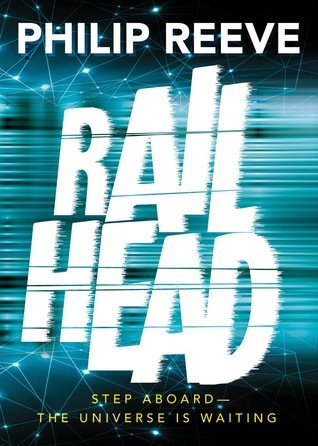In his sci-fi novel Railhead, Philip Reeve encourages readers to rethink what it means to be human. The trains and Motoriks are both machines and yet they become strangely human-like because of their ability to independently think and communicate. Nevertheless, the trains and Motoriks never become true people because they are not made of living, breathing flesh. Nova seems to be one exception to this. Even though Nova is a Motorik, she is humanized because of Zen’s love for her.

Nova’s character is a bit unsettling because she is strangely human but not at the same time. Although Nova knows that she is a wire dolly, she gives herself freckles because she does not want to look like a flawless doll (45). Nova is more independent than other Motoriks because she can program herself (41). However, Zen is very conscious of the fact that although she might appear human, she is only an imitation of a human being. He does not want to touch Nova’s hand because her “synthetic flesh felt so nearly like the real thing” (34). Nova is clearly a Motorik because of what she is made of. Despite this, Nova tells Zen, “I am human… I have a processor for a brain instead of a lump of meat, and my body is made of different substances, but I have feelings and dreams and things, like humans do” (46). Nova can claim to be a human because she can experience deep feelings and emotions, unlike other programmed robotic Motoriks. Even though Nova has human-like emotions, she still cannot pass off as human because of what she is made of.
Nova is not humanized in the eyes of the reader because of anything she does but because of Zen’s growing love for her. When Zen loses Nova after the Spindlebridge incident, he confesses that he “had never dreamed the breaking of a Motorik could hit him so hard. He missed [Nova] more than anything, her voice in his ear and her not-quite-human kindness” (143). Zen finds himself quite heartbroken over the loss of Nova and is overjoyed when they are reunited (147). When Zen looks into Nova’s face, he thinks that “[t]he mind that lived behind it made it beautiful” (138). Zen falls in love with Nova because of who she is – her personality and her character – not for what she is. Slowly, Zen begins to see Nova as a human-being with real feelings. When he tries to comfort a sad Nova, he thinks of her as a person as he admits he “wasn’t used to having to deal with other people’s feelings” (234). At the end of book, Zen is angry that “Raven had tricked [Zen] and used him and taken him for granted” and that he had also “treated Nova like a machine” (237). Zen lists Nova’s grievances alongside his own and presents Raven’s treatment of Nova as an object as wrong. Zen sees Nova as more than a machine; he views her as a real person. Malik correctly sees that Zen and Nova “love each other” (293). This “love” is not the kind of affection that one would have for an inanimate object, but is a real, genuine, romantic kind of love that one human-being has for another. Although Nova is still a machine, Zen loves her and because of this, Nova is humanized.
Reeve, Philip. Railhead. Oxford University Press, 2015.